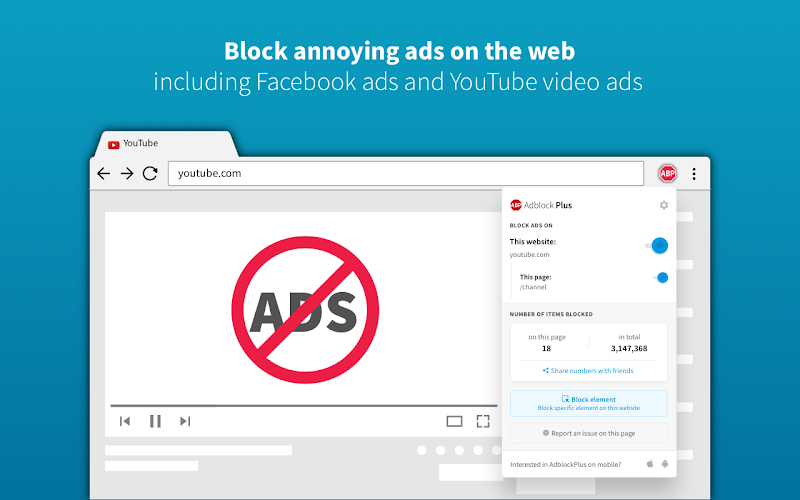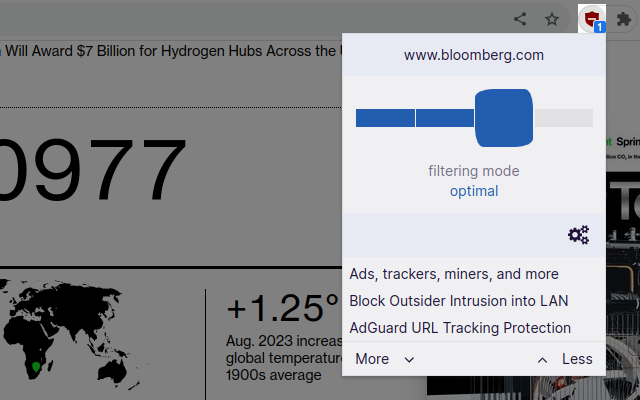[ad_1]
Google is altering how Chrome extensions work on the desktop and Chromebooks. Whereas the Manifest V3 adjustments are billed as methods to enhance security and effectivity, the best way in addition they restrict how adblocking extensions like uBlock Origin at present work has drawn lots of criticism.
I’m certain the truth that Google is the world’s greatest promoting firm has nothing to do with it.
Personally I’d advocate altering browsers. Chrome has been getting below my pores and skin recently, in order that’s precisely what I did, and there are many options that may stay appropriate with present Chromium extensions for longer than Chrome itself.
However if you wish to persist with Chrome (otherwise you’re utilizing a Chromebook and also you don’t actually have a selection), listed here are 4 options which have already been upgraded to the brand new commonplace. They’re shedding some capabilities resulting from Google’s extra restrictive implementation, however they need to nonetheless block nearly all of promoting on the net.
AdBlock Plus

AdBlock Plus
AdBlock Plus might be the most well-liked ad-blocking extension for Chrome, if solely as a result of it’s the primary one which pops up once you seek for blockers on the Chrome Internet Retailer extension repository. It’s been going for over 20 years, and has probably the greatest setups for comprehensively blocking promoting throughout the online.
The extension has all of the fundamentals lined, together with an allowlist that lets sure web sites show adverts by default, the power to subscribe to public lists of blocked domains, and blocking promoting cookies and different background trackers. AdBlock Plus has already been up to date to be compliant with Manifest V3, so it’s good to go.
AdGuard
AdGuard is the blocker I exploit in my browser, as a result of it’s simple to arrange a “reverse allowlist.” This lets me toggle advert blocking on just for web sites which might be notably sketchy (or annoying). It’s notably efficient on YouTube, as I’ve defined earlier than.
AdGuard will flat-out refuse to connect with web sites identified to be malicious for phishing assaults or spreading malware, and it’s good at collapsing the weather of the web page that usually show adverts, making formatting a lot much less cluttered. AdGuard’s Manifest V3 model is at present in beta testing, and needs to be transitioning into the first extension lengthy earlier than the time it turns into obligatory.
Ghostery

Ghostery
Ghostery is a blocker and repair that’s all about blocking monitoring and offering privateness. Sadly, the builders say that Manifest V3 will make that rather a lot more durable, because it appears designed to profit Google as an advertiser excess of Chrome customers.
All that being mentioned, Ghostery model 10 is compliant with V3. However the firm maintains that Firefox, the one main impartial browser not based mostly on Chromium, is a greater various if you wish to make most use of its privacy-preserving options.
uBlock Origin Lite

uBlock Origin/Raymond Hill
The three ad-blocking merchandise above — all of which supply a industrial improve — are complying with Google’s Manifest V3 ultimatum, as a result of they must. However uBlock Origin is a product with a single developer, who doesn’t promote an improve. Lots of people converted after AdBlock Plus began “promoting” entry via its Acceptable Advertisements program.
However developer Raymond Hill has made one thing of a protest towards the extra restrictive Manifest V3. As a substitute of updating the unique uBlock Origin to be compliant, he’s created a second model, uBlock Origin Lite. It would keep many of the authentic’s performance, however could also be much less efficient resulting from V3’s lack of entry to the community layer.
Different choices
If you wish to stick with Chrome and nonetheless block adverts, there are different choices. Most advert blockers even have a separate program implementation, an app that runs exterior the browser and blocks adverts on all purposes that entry the web. AdGuard presents this on Home windows, and there are many selections on cellular.
You can too block promoting at a extra elementary degree by utilizing a VPN, which can filter all of the visitors coming into your PC. You may even lengthen this to each machine in your own home with a VPN operating in your internet router itself, or routing visitors via a DNS server. If you happen to do that on the router degree with one thing like a Pi-hole, it’ll have the bonus impact of blocking adverts on different units, like your sensible TV.

Aquarius Studio/Shutterstock.com
VPN and DNS-based blocking and blocking tends to be a lot broader, and because it’s achieved by routing your visitors via a distant server, it’s more durable to filter what will get in and what doesn’t. OS-based blockers run into an identical downside, as a result of they block based mostly on domains slightly than web page parts. So web sites that route promoting visitors via their very own companies, like Fb, Amazon and (ultimately) YouTube, could possibly serve up adverts unimpeded.
Realistically, there’s no approach to keep away from promoting in each a part of your digital life. And it’s not as if I can declare to be neutral right here — many of the cash that pays my wage at PCWorld comes from both promoting or affiliate income, and the identical is true for nearly all websites that cowl expertise information and evaluations. However these instruments ought to go a good distance in the direction of making the online simpler and safer so that you can navigate.
Though if you happen to’ve discovered this or some other PCWorld articles useful, a pleasant approach to say “thanks” can be to show off the advert blockers once you go to.
[ad_2]
2024-08-19 10:30:00
Source hyperlink:https://www.pcworld.com/article/2429437/four-ad-blockers-that-still-work-with-chrome.html

